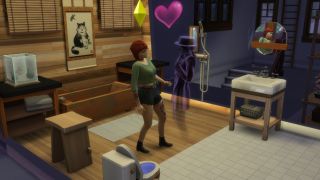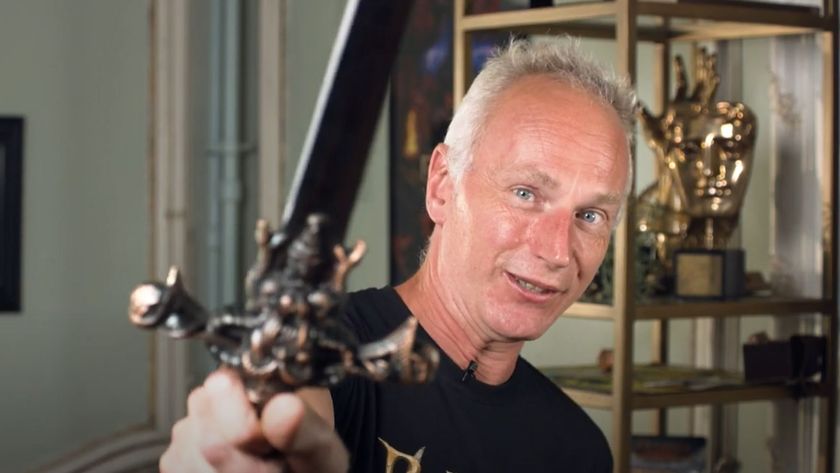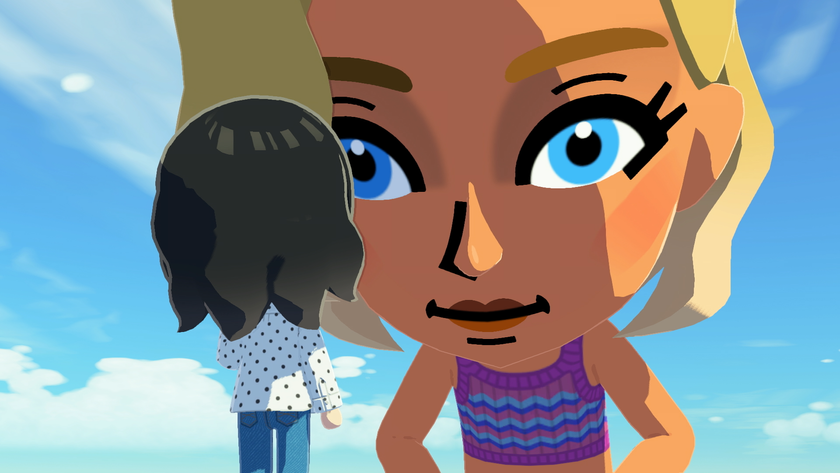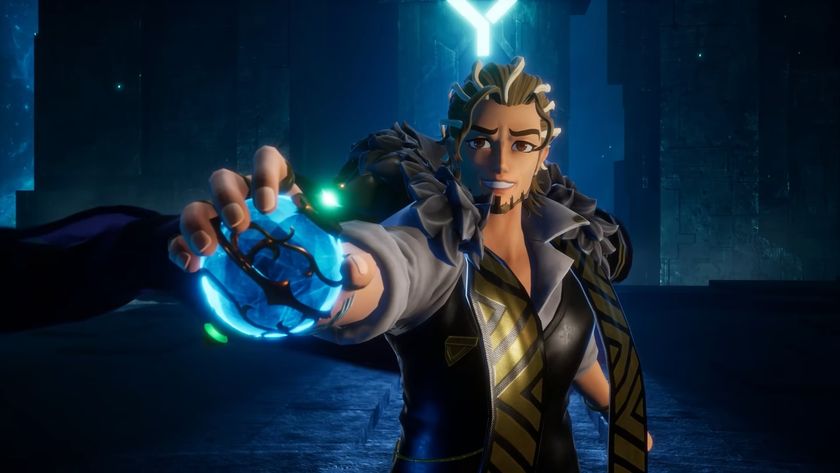How games like The Sims and Mass Effect helped me suss out my sexuality
I explored my bisexuality in games like The Sims and Mass Effect before I could in the real world

The words "I'm bisexual" didn't leave my mouth until my mid-twenties.
Growing up in a somewhat conservative household in a very conservative town, there were myriad hints in my youth that I wasn't straight – from the even split of Megan Fox and Pete Wentz posters in my bedroom to the unwavering obsession I had with the cast of Blue Crush – but even I wasn't sure what my preference was until well after college. I dated men throughout my adolescence and early adulthood, but consistently felt a pull to women and non-binary people that I couldn't comfortably pursue in real life.
I did, however, date a lot of women in video games. Whether I was stepping into the N7 armor of FemShep in Mass Effect or building a Sims character in my image and sending her to flirt with her auburn-haired next door neighbor, the game world was a place where I could safely explore my sexuality. At one point I even designed a Tony Hawk Underground character who looked like an older girl I had a crush on who worked at Hot Topic.
At 31-years-old, I am much louder about my sexuality than I was in my mid-twenties, but for a long stretch of my life my only queer experiences were in video games. The game spaces that let me comfortably explore my sexuality are a huge reason why I'm out and proud today; playing bisexual in a game made it a lot easier to play bisexual IRL. And the game industry continues to offer new ways to explore sexuality and identity for LGBTQ+ community members, whether it's The Sims 4, the reemerging Mass Effect: Legendary Edition, or even the customization options in Cyberpunk 2077 (despite its controversies, it's still the first game of its size that allows you to create a transgender character).
For many of us, games are the way to safely and comfortably suss out our sexuality, and it's important to recognize that - not only during Pride Month, but well beyond it.
The bi dating sim

When I first started playing The Sims, I was a boy-obsessed 13-year-old who would make households consisting of my best friends and my school crushes. I'd pair my friends up with whatever crush wasn't being nice to me in gym class at the moment, and spend hours crafting CW-level drama between us. Eventually, however, I grew tired of trying to make my classmates fall in love with me, and began focusing on furthering my career as a famous movie actress.
Not long into my burgeoning career, my Sim and one of the random female Sims I had put in her household were hanging out together when I started prompting them to tickle each other. Shortly after our tickle session, I noticed our relationship bar was high enough for my Sim to develop a crush on her – and kiss her. I remember at the time furtively glancing over my shoulder to see if my noisy younger sister or even noisier parents were watching me play before swiftly clicking the 'kiss' option. They embraced and I smiled – but then embarrassment quickly set in. I immediately shut the computer off and didn't return to the game for a few days, feeling uncomfortable with what had just happened. I wasn't disgusted, but I wasn't sure if it was okay. When I did finally return to the Sims world, however, I kept having my Sim kiss her roommate.
Sign up to the 12DOVE Newsletter
Weekly digests, tales from the communities you love, and more
The LGBTQ+ relationship and identity options have drastically evolved since the original Sims game, as has BIPOC representation. In 2016, The Sims 4 removed restrictions on clothing based on gender and let players choose any physique, walk style, and tone of voice regardless gender. EA improved Black hairstyles and skin tones, as well, offering more marginalized members of the queer community better options to represent themselves and tell stories that are true to their experiences. For many, The Sims is a safe space to explore sexuality that is taking important steps towards inclusivity for all.
In love with Liara

I played the first Mass Effect game when I was 18 years old, fresh out of high school and nervously navigating my first year of college. At the time, there was a lot of pressure to go out with fake IDs and entice frat boys, and I definitely took part in the heterosexual hookup culture that dominated my school's campus. Conversely, I'd also sit in my dorm room and date a blue alien woman in Mass Effect.
The moment I realized my FemShep could romance Liara T'Soni, I reacted nearly the same way I did five years earlier when my Sim Alyssa kissed another girl: I glanced over my shoulder to see if my roommate was watching. But instead of surreptitiously turning off my console at the first sign of queerness, I decided to lean in. I told Kaidan Alenko to kick rocks and started pursuing Liara, booting up my Xbox between classes to awkwardly flirt with her.
I never told the straight friends I went out with every weekend that I was dating an alien who had sex with her mind. I continued to act with the aggressive heterosexuality society has normalized for college-age adults – despite leaning into my bisexuality in the game space, I wasn't ready to do it in the real world. Even when I returned as an alumna with one of my roommates a few years later, I felt the burn of her disapproving eyes when I spent the night dancing with a woman. That disapproval dropped a sort of bisexual bezoar into the center of my gut, and when my dance partner leaned in for a kiss, I ducked away, left the bar, and walked back to the hotel alone.
In the game world, I dated Liara T'Soni throughout the entire Mass Effect trilogy (and technically my entire college career). In the real world, I had my first girlfriend at 27. Needless to say, it took some time to get comfortable being a bisexual woman, but without game spaces like The Sims and Mass Effect giving me a chance to explore and confirm I was Definitely Not Straight ™, I may have never come out.
It's so important that games continue to invest in these spaces by listening to player feedback and offering players a bevy of choices when it comes to character customization and romance options. As myself and countless other have learned, virtual worlds often provide more freedom of expression and exploration than our real lives ever could.
Alyssa Mercante is an editor and features writer at GamesRadar based out of Brooklyn, NY. Prior to entering the industry, she got her Masters's degree in Modern and Contemporary Literature at Newcastle University with a dissertation focusing on contemporary indie games. She spends most of her time playing competitive shooters and in-depth RPGs and was recently on a PAX Panel about the best bars in video games. In her spare time Alyssa rescues cats, practices her Italian, and plays soccer.

Larian boss defends mods as D&D owner Wizards of the Coast blasts a Baldur’s Gate 3 Stardew Valley mod offline with a DMCA: "There are good ways of dealing with this"

Tomodachi Life sickos waited 12 years for a sequel, and now it's so popular it's even overshadowed the Nintendo Switch 2 buzz in Japan











